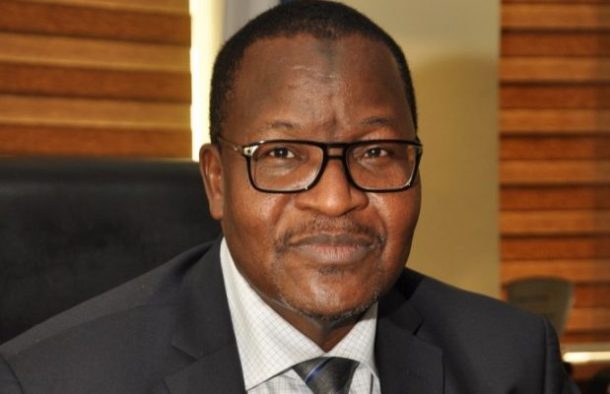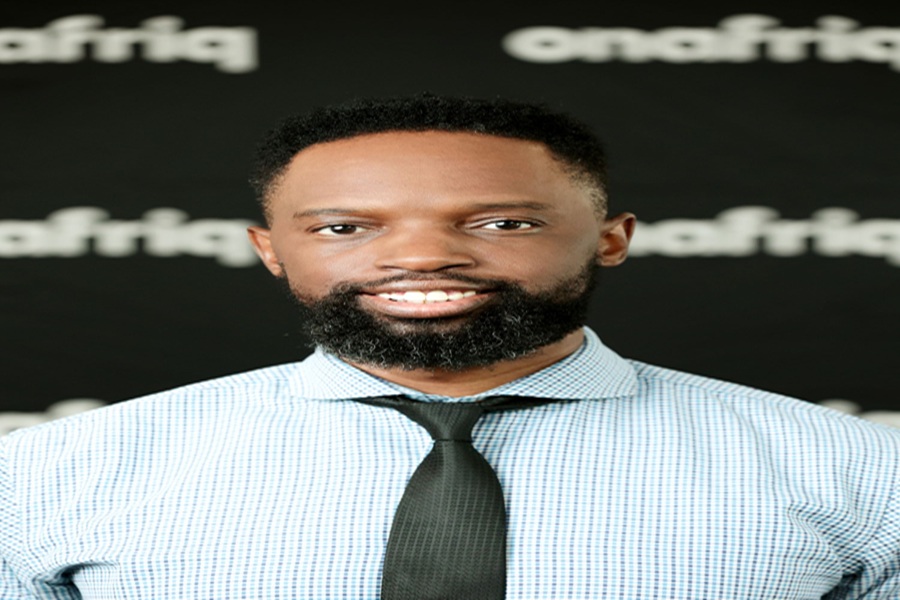Telecom
Danbatta Visits ECCs, Tasks Personnel on Commitment to Saving Lives

Prof. Umar Danbatta, executive vice chairman (EVC). Nigerian Communications Commission (NCC), has paid a visits to the Emergency Communications Centres (ECC) in Kano and Kaduna.

Prof. Umar Danbatta, EVC, NCC
This is in a bid to ensure that the toll-free 3-digit National Emergency Number, 112, is being put to effective use in this critical time of Coronavirus pandemic, and national objective of enhancing security of lives and properties.
Danbatta’s visits were informed by his realization that, with Coronavirus spreading across the globe and more people living in isolation, the NCC’s 112 toll-free number could play a crucial role of providing effective alternatives for people to reach out to relevant agencies with a view to securing help in times of emergency.
During his visits to the two centres, Danbatta had extensive interactions with the personnel on ground, as he asked various questions bordering on the in-coming call traffic volume and how the calls are effectively dispatched to various emergency response agencies (ERA) connected to the centres for prompt response, especially the Nigeria Centre for Disease Control NCDC).
He also took his time to find out if the centres were facing any challenges that needed to be addressed for their optimum efficiencies and effectiveness towards delivering on their mandates.

Prof. Umar Danbatta, at the centre
The EVC urged the personnel on duty at the two ECCs to see their work as national assignments on saving the lives of fellow Nigerians in terms of emergencies.
“As you all area aware, the country in on lockdown in Lagos, Ogun States and FCT, and I will therefore enjoin you to always ensure you don’t miss any call that comes into the centre. You will also be expected to ensure prompt dispatch of calls received to the relevant emergency response agencies, so that there is no any dereliction of duty that will result in loss of lives and property to our fellow Nigerians, who may even be our close relatives,” Danbatta urged the excited personnel.

Danbatta
Speaking further, the NNC boss advised the personnel to observe sanitary measures like hand washing and social distancing at the centres.
In both Kaduna and Kano centres, the managers told the EVC that they had been receiving coronavirus-related calls.
The personnel also appreciated the visits of the EVC to the centres which they variously described as ‘a morale booster’, ‘a good regulatory oversight’ and ‘an encouragement’ for them to be more committed to their assigned roles at the emergency communications centres.
As NCC project mandated in the Nigerian Communications Act (NCA), 2003, the implementation of the ECC got a boost when Danbatta became the country’s telecoms regulator-in-chief in 2015.
Till date, 18 of the centres have been built and are operational in all 17 states of the Federation and the Federal Capital Territory.
Each of the ECCs is equipped with 11 workstations (10 for call taking and one for the Supervisor); a server system that receives and processes 112-calls from members of the public and then dispatches the calls to the appropriate Agency that has responsibility to attend to the specific emergency.

Prof. Umar Danbatta, going round one of the centres
Facilities in the ECC also include power supply mix consisting of public power supply from the national grid, two (2) units of 100KVA generators; and two (2) units of 20KVA UPS powered by 160 units of 100AH inverter batteries and a 10KVA UPS powered by 16 units of 100AH inverter batteries; and six dispatch workstations for the Response Agencies.
The significance of the ECC project was underscored by President Muhammadu Buhari, on March 19, 2020, when unveiled the 112 National Emergency Number and ECC for the FCT, describing it as a project that will complement the Federal Government’s efforts enhancing the security of lives and property in the country.
Today, states, relevant agencies of governments and individuals Nigerians are making use of the 112 Number to seek help during emergencies, and more importantly, at this critical time when government is working round-the-clock to curtail the spread of COVID-19 pandemic.
In December last year, the NCC and Danbatta received separate awards of ‘Corporate Social responsibility Award in Security and Emergency Management’ and ‘Nigeria’s Goodwill Ambassador for Security and Emergency Management’ respectively during first-ever Security and Emergency Management Awards (SAEMA 2019) held in Abuja by the Emergency Digest, in conjunction with the Centre for Crisis Communication (CCC).
The Commission also got inducted into the membership of the Forum of Spokespersons of Security and Response Agencies (FOSSRA) in February, 2020, in recognitions of the critical role the ECC is playing in securing safety of lives and properties of Nigerians.
Telecom
Onafriq, PAPSS Launch Wallet-Based Payments Pilot from Nigeria to Ghana

Onafriq Nigeria Payments Ltd, a CBN licenced payment service provider, partners with The Pan-African Payment and Settlement System (PAPSS) to pilot the continent’s first wallet-based outbound payments from Nigeria to Ghana – fully in Naira and instant, without relying on hard currency conversion, in partnership with Banks and Mobile Money Operators.

The pilot service, approved by the Central Bank of Nigeria (CBN), enables cross-border intra-Africa payments for individuals, merchants, and traders.
In particular, the service will benefit SMEs, the real engine of intra-African trade; all now have access to a faster, cheaper way to reach customers and suppliers across the border.
By reducing barriers to cross-border trade, the new service will allow these businesses to grow their addressable markets and activity. From the 1st of December, this service will be fully operational for a 6-month period.
Through the partnership with PAPSS, Onafriq is supporting the operationalization of the AfCFTA (Africa Continental Free Trade Area) mandate.
The mandate itself is driving tariff-free trade for the 54 member states of AfCFTA. Within the partnership itself, Onafriq provides the mobile money rails, with an ecosystem consisting of over 1 billion mobile wallets.
Meanwhile, PAPSS brings a network of over 160 commercial banks, representing an ecosystem of more than 400 million bank accounts across its 19 African countries of operation.
The two partners are essentially seamlessly connecting two worlds: mobile money and banking. As a consequence, intra-African trade transactions will take place more easily and opportunities will be created.
Currently, Africa is made up of bank and mobile-led markets, with siloes often inhibiting transactions between these economies. However, this partnership will remove these boundaries. With over one billion mobile wallets and 500 million bank wallets across Africa, this partnership will allow for cross-border collaboration at scale.
This partnership builds on Onafriq and PAPSS’ existing partnership for payments into Ghana, announced earlier this year.
Mxolisi Msutwana, Managing Director Anglophone West Africa said, “Our work with PAPSS shows what collaboration at scale can unlock—seamless, secure connections between banking systems and mobile money ecosystems.
“This is how we open bi-directional trade corridors, reduce costs for businesses, and give African enterprises the rails they need to trade with confidence in their own currencies. The vision is continental, but it starts with practical steps like this one.”
Ositadimma Ugwu, Chief Information Officer, PAPSS, added “Too often, African businesses and individuals see borders as roadblocks instead of opportunities. With this step, we’re challenging that mindset, giving Nigerians the ability to send value next door with the same ease as sending a text message.
“Our vision is simple: make Africa’s borders invisible to payments. This pilot makes that a reality, moving us closer to a continent where payments don’t pause at the border.”
This new Nigeria-to-Ghana outbound capability builds on the successful Ghana-to-Nigeria instant payments corridor launched earlier this year – further proof that Africa’s payments future is local, instant, and inclusive.
Telecom
MTN Powers 6,000 Young SMEs with Digital Skills in Economic Backbone Boost

MTN Foundation has kicked off the year with its five-week Digital Skills Training programme, upskilling 6,000 young Nigerians. The programme, which is in its fifth week commenced in January 2026.

MTN
The seventh phase of the project is focused on supporting Nigeria’s microbusiness to embrace digital transformation, at a time when SMEs remain the backbone of the Nigerian economy.
According to the National Bureau of Statistics (NBS), SMEs account for over 90 per cent of businesses in Nigeria and employ a significant portion of the country’s workforce, underscoring the importance of initiatives that strengthen their productivity and sustainability.
Following a one-month call for applications in September 2025, which saw almost 64,000 entries from Nigerians between the ages of 18 and 35, the 6,000 selected microbusiness owners have embarked on a five-week training that will end in February 2026.
The virtual training programme began with a general onboarding session that brought together participants across four business tracks and set the foundation for a four-week programme focused on practical digital strategies for business growth.
Microbusiness owners from sectors including circular economy, agriculture, food services, fashion, retail, logistics, beauty, and printing attended the training.
At the heart of the training is the principle that digital transformation has the capacity to enable small businesses scale and become more efficient. Participants were encouraged to start small, digitise repetitive tasks, and scale gradually using the Kaizen approach of continuous improvement.
This mindset allows them to see technology as a practical enabler of growth rather than a barrier. As the training progressed, the participants also learned about telesales and cybersecurity.
Speaking on the importance of the initiative, Odunayo Sanya, Executive Director of the MTN Foundation, said the programme is designed to equip young microbusiness owners with skills that directly address real business challenges.
“Small businesses are the backbone of our economy, and enabling young people adopt simple digital tools can make a real difference in productivity, sustainability, and long-term growth,” she said.
She also mentioned that the top-performing 600 participants will receive equipment grants of N600,000 each at the end of the programme.
Participants will continue to access learning materials and session recordings for the 5-week course, ensuring that digital adoption extends beyond the classroom. By combining practical guidance, relatable case studies, and continued support, the programme reinforces the message that digital growth for SMEs is achievable leveraging on technology.
Telecom
Airtel Nigeria Commits to Boosting Nigeria’s Digital Infrastructure

Airtel Nigeria has reaffirmed its long-term commitment to strengthening Nigeria’s digital infrastructure and data access to bridge gaps in connectivity and unlock new opportunities in the country.

The company restated this commitment during a recent high-level inspection tour of the Nxtra Data Centre that is being developed through Nxtra by Airtel Africa at Eko Atlantic, Lagos, the highly rated smart city with ambition to become the Data Centre hub of Nigeria.
The inspection tour was led by the Chief Executive Officer of Airtel Nigeria, Dinesh Balsingh and the Chief Executive Officer of Nxtra by Airtel Africa, Yashnath Issur, with the esteemed chairman of Eko Atlantic Mr. Gabbi Massoud, the CEO of the lead Engineering firm Design Group Limited, Mr. Bayo Odunlami and tech journalists.
The Nxtra Data Centre went through a stringent design validation process and cleared the approval to proceed construction from Eko Atlantic.
Commenting on the developments, Mr Issur said the site visit was a milestone marker and an indication of the company’s commitment to delivering the world-class digital facility on time and ensure that, ultimately, the investments deliver reliable, secure, world-class services for Nigeria and the rest of the continent.
“This Nxtra Data Centre in Lagos represents a critical part of our long-term vision for Nigeria’s digital ecosystem. Today’s visit allows us to review progress, engage our stakeholders, and ensure that our infrastructure investments continue to meet global standards and local needs.
“This data centre will deliver critical high multi megawatt capacity in line with hyperscale customers and enable high density environment. We are putting the infra to bring the cloud to Nigeria,” he said.
The data centre, set to be the largest in Nigeria, is being established to deliver hyperscale and edge facilities across key African markets. With a load of 38 Megawatts, the Lagos facility is expected to serve as a major hub for data hosting, cloud services, content distribution, artificial intelligence, and enterprise solutions in West Africa.
In his remarks, Mr Balsingh reiterated that the data centre was progressing steadily towards the previously announced 2028 go live date.
“Since the announcement of this project, our focus has been on building a world-class facility that supports Africa’s digital transformation agenda. We are encouraged by the progress recorded so far and remain committed to delivering a secure, energy-efficient, and future-ready data centre for Nigeria,” he said.
During the tour, stakeholders were ushered through key sections of the site, including piling zones, where required structural requirements have been tested. Technical teams provided briefings on infrastructure design, security architecture, redundancy systems, and sustainability measures being implemented to ensure reliability and operational excellence.
Strategically located close to major fibre routes and undersea cable landing stations, the Eko Atlantic data centre is designed to enhance Nigeria’s data sovereignty, reduce latency, and improve access to reliable digital services for private and enterprise customers, significantly boosting the country’s data hosting capacity and supporting emerging technologies such as artificial intelligence and cloud computing.
Mr. Massoud noted that the inspection tour underscored the city’s dedication to infrastructure of global relevance.
“Eko Atlantic as a city with high quality infrastructure will contribute positively to boost the economy of Nigeria and is a perfect place for the development of the digital infrastructure of Nigeria. The Nxtra data centre reflects the calibre of projects we seek to attract — long-term, technology-driven investments built to the highest global standards.
Today’s visit affirms the rigour of the planning and execution process by Nxtra, and the commitment of Eko Atlantic to facilitate and promote the Nigeria’s evolving digital ecosystem,” he said.
Through this ongoing investment, Airtel Nigeria and Nxtra continue to demonstrate their commitment to building infrastructure that enables innovation, supports economic development, and accelerates Nigeria’s digital transformation.
Nxtra by Airtel is developing a network of hyperscale data centres across the continent. Besides Lagos, construction of a new data centre has also commenced in Nairobi, Kenya and the Democratic Republic of Congo.

 Telecom3 days ago
Telecom3 days agoTelecom Operators Invest Over $1Bn on 2,850 New Sites in 2025 – NCC

 E-Financial3 days ago
E-Financial3 days agoIf Capital is the Answer, What Exactly is the Problem with First Holdco

 E-Financial3 days ago
E-Financial3 days agoAmaanah Finance to Unveils Non-Interest Banking Services Today

 News2 days ago
News2 days agoNSCDC Hands over Fake Crypto Currency Trader to EFCC

 General News3 days ago
General News3 days agoFirst Trustees to Host 8th Islamic Estate Planning Clinic in Abuja

 News2 days ago
News2 days agoAlakija’s Flourish Africa Provides N300m Grants for Women Entrepreneurs

 E-Financial2 days ago
E-Financial2 days agoAccidental Billionaire Opts for Jail Instead of Returning Money Credited Him by Mistake

 General News3 days ago
General News3 days agoSecurity Forces Probe Use of Drones by Terrorists























